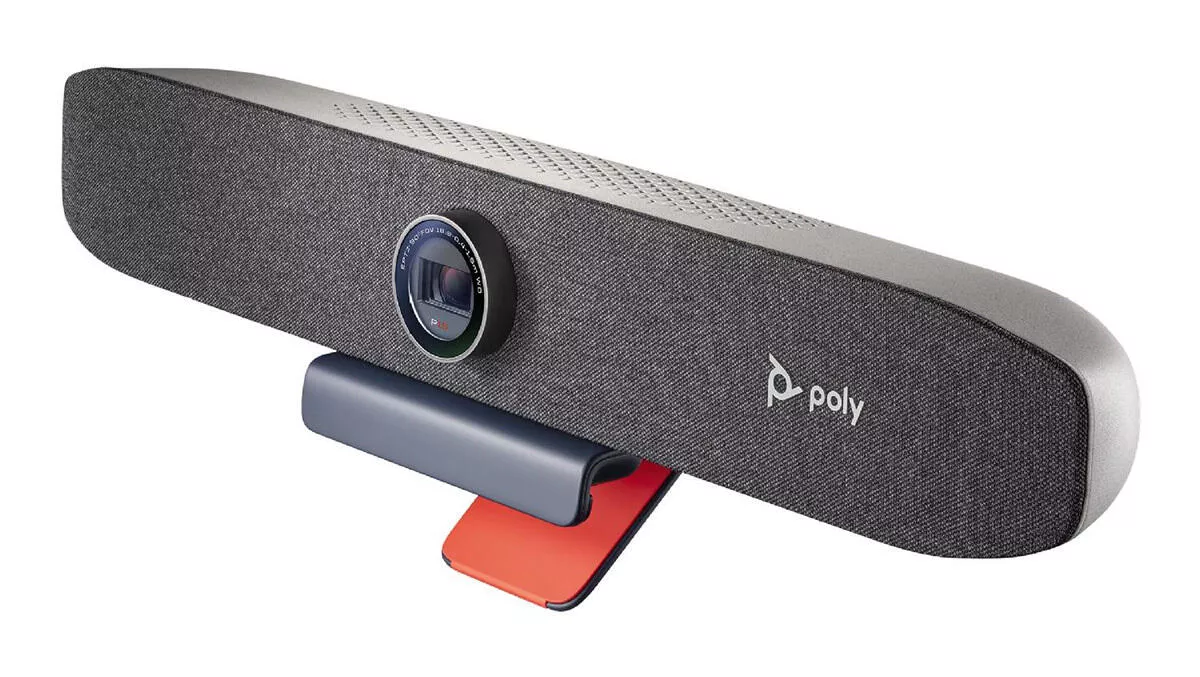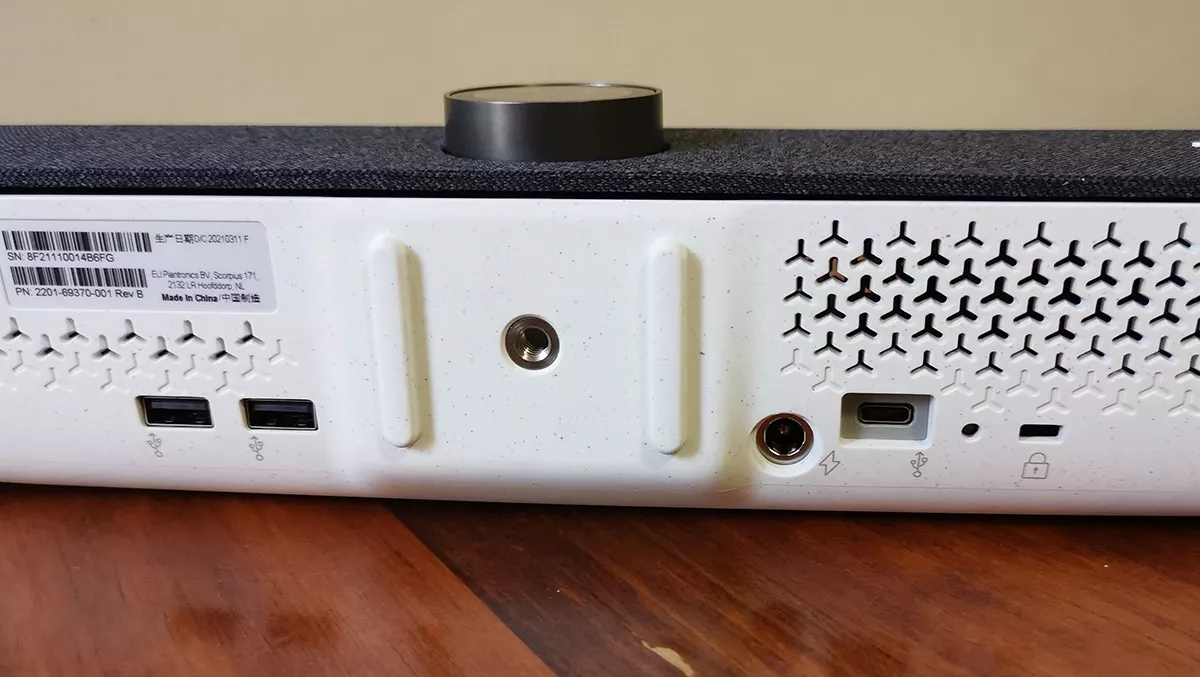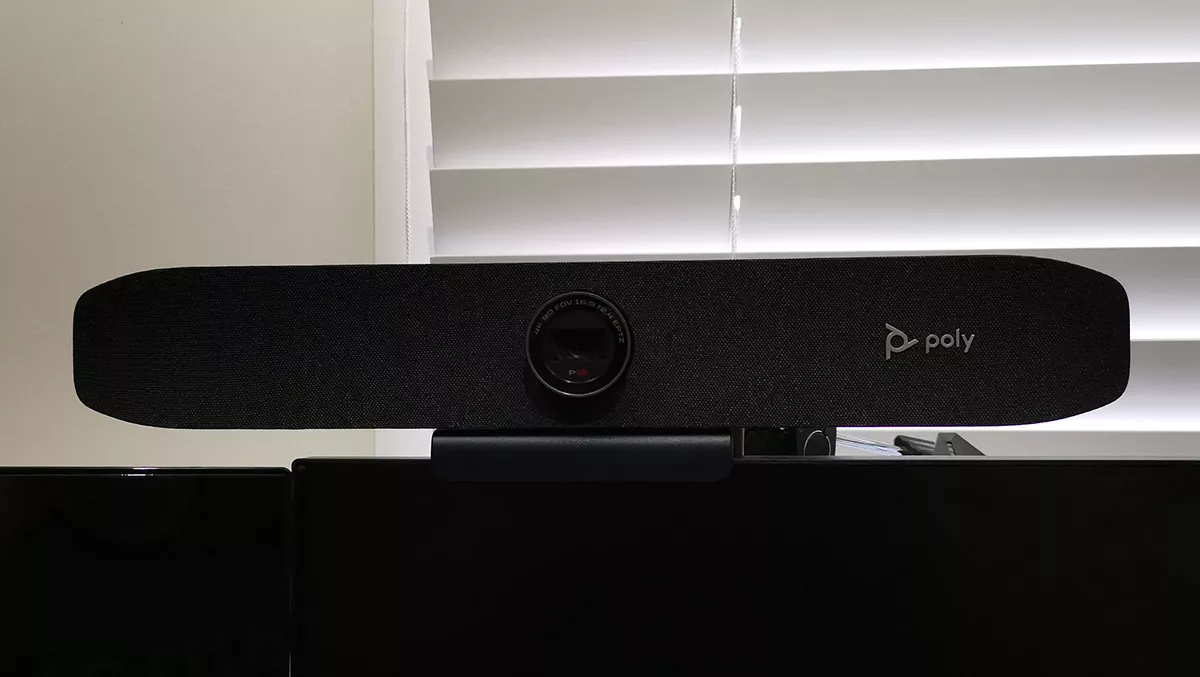
Hands-on review: Poly Studio P15 Personal Video Bar
Over the last year and a half, I've watched countless absolutely horrendous video presentations that have made my toes curl. It's fair enough that COVID-19 caught us all unawares. If, however, you are presenting to a paying audience, or want to maintain the same level of professionalism remotely as you would face-to-face, you need a decent webcam and audio set-up.
During the first half of 2019, a pair of $2 earbuds dangling from your ears and jittery images from that dusty old webcam from 2010 was fine. But it's not anymore. And hasn't been for a while. Washed-out video, hollow audio, and a backdrop of your dining room just don't cut it.
The folks at Poly have been trying to sort out the current video conferencing amateur hour with a range of products to put the professional back in professionalism. They sent over one of their latest products for testing.
The Poly Studio P15 Person Video Bar is an impressive beast. It can be affixed to a mount or tripod, or rested on any flat surface. It does come with a stand for resting the device on top of your display.
The P15 is an elegantly designed device. The fabric front provides a uniform finish punctuated by the camera in the centre and the stylish Poly logo on the right side. At just over 400mm long it looks out of place anywhere but on the top of your TV. Sitting atop my 32" monitor, the device seemed rather imposing.
The device is easy to set up. It has its own independent power supply and is connected to your PC, Mac, or laptop via a USB Cable.
The enclosed "Quick Start Guide" is annoyingly brief. It seems designed to get the device going, without providing any further information on optimising the camera or audio to get the most out of your investment. For more information, you need to head on to the Internet.
Poly equipment uses the company's Poly Lens app to control and adjust settings. With the app installed I was granted some additional control over the device. To be honest, the Poly Lens software is not very intuitive and doesn't apport the same amount of display option as I have with my $100 Logitech camera. I found using the Windows camera app to be just as effective.
The Poly Lens app does have a link to the P15's PDF manual. It's not the most informative document, concentrating on the nuances of video conferencing more than the technical aspects of the device. For instance, whilst the manual identifies the two USB Type-A sockets on the device, it neglects to advise that these can be used as a USB hub. They are in a bit of an awkward position. They are low-powered USB sockets and no good for use as a power source for my USB LED studio lights.

The Poly P15 is compatible with Nvidia Broadcast for some more advanced auto-panning and background removal/blurring effects.
For the fully 4K image, the video bar needs to be connected to a PC or Mac via the USB Type-C cable, supplied. The supplied cable is only about 1m long, which limited where I could position the camera (my PC being on the floor and my desk being long with a monitor in the middle).
The camera's 90-degree field-of-view is the BIG DEAL and something that more dynamic presenters may relish. If you've spent the last year-and-a-half hunched over a laptop, peering into a camera, whilst mumbling into the tinny mic, the Poly P15 will blow your mind.
The camera's tracking and zoom ability allow it to keep the presenter in the frame, whether sitting up close up walking about within the huge field of view. This allows for a more natural presentation style.
Rotating the lens closes the camera for privacy with a green light to let you know that the camera is active. There's no external way of muting the mic, this would have to be done in your conferencing software.
The P15 has three microphones and one speaker. The microphones have no problem picking up audio from a few metres away and the speaker reproduces crisp audio. The speaker seems to flatten the sound of people speaking, taking out room echo and making them very easy to hear.
My biggest disappointment with the camera is that it only caters for 30 frames per second. This is a bit of a shame for a device costing AU$1500. A 4K 60 fps camera would have opened the P15 up to streaming and really professional video presentations.
The Poly Studio P15 Personal Video Bar is just the device to allow remote presenters and video conferencing to have almost the same level of professional flare as you'd expect face-to-face.
The documentation could do with being a little better but, for the most part, the device is plug and play. I would have liked to have seen 60 frames-per-second as opposed to 30, but 30 is fine for low-bandwidth video conferencing, which is what the P15 is really designed for.



